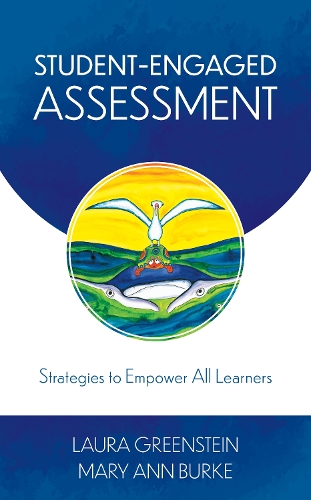
Student-Engaged Assessment: Strategies to Empower All Learners
(Paperback)
Publishing Details
Student-Engaged Assessment: Strategies to Empower All Learners
By (Author) Laura Greenstein
By (author) Mary Ann Burke
Bloomsbury Publishing PLC
Rowman & Littlefield Publishers
30th June 2020
United States
Classifications
Professional and Scholarly
Non Fiction
Educational strategies and policy
Educational administration and organization
Student life
371.26
Physical Properties
Paperback
160
Width 154mm, Height 222mm, Spine 12mm
249g
Description
This book feasibly translates validated research and best practices in assessment so that the reader can incorporate the best practices of assessment into practical routines in schools and the classroom. Readers of this book will strengthen their knowledge and skills in selecting, designing, and using assessments that enable all learners to actively participate and monitor their own progress towards learning objectives.
This book is intended to be a hands-on guide for educators and students on the best and most effective practices for supporting students in their role as self-assessors. It develops sequentially from ensuring that students are assessment ready, to engaging students in assessment, and ultimately empowering students as assessors. Readers can also rely on the book to help them improve specific aspects of self-assessment that are most important in their setting and for their students.
Reviews
Laura Greenstein and Mary Ann Burke provide educators with an excellent resource to engage and empower students in the assessment process. Student-Engaged Assessment focuses on keeping the student at the center of engagement and showing educators the methods and means to make this a reality. The authors reinforce the idea that student engagement is key to not only personalizing learning goals, but also developing a meaningful, cogent action plan.
This book centers students in the assessment process by not only asking learners what they think should be measured, but also incorporating them in the design of assessment tools and practices.
Greenstein and Burke also build educator self-efficacy in this model by embedding self-reflection and documentation of mindsets across the text. The book builds the skillset of readers as they ask readers to think about and document learning process, products, and outcomes. The ability to document the readers thinking creates an ongoing dialogue with the authors and points made in the text.
I work with students who rely on reading interventions to make progress towards grade level expectations. Being involved in learning and assessing is essential for these learners, as it is for all students. The book makes it easy for teachers to recognize the fundamental ideas of engagement and at the same time, it supports the reader in going as deeply as they need or want into the concepts and practices. The SOAR model provides an indispensable format for engaging all students in a sequential process towards agency. -- Kim Theadore, Reading Specialist
As a believer in the power of self-directed learning, this book will guide and support teachers in taking student engagement to the next level. It does a powerful job of translating research and theory into an actionable and sequential plan for empowering students as self-assessors. It is a must-have resource for teachers and school leaders and will be a valuable asset for professional development in that teachers can customize and apply the models and templates for their own setting.
The practical ideas and strategies are immediately usable not only in our classrooms, but throughout our system, in both short cycle assessments as well as in support of national standards. When students are invested in their learning outcomes, whether they are in traditional schools or alternative settings, the practices described in this book are relevant, adaptable, and immediately useful. They are especially significant for our most vulnerable learners.
Author Bio
Laura Greenstein is a lifelong educator having taught and assessed learners from preschool to graduate school across subject areas. Her passion for educational assessment is evident throughout her work as an author, blogger, consultant, and mentor to teachers and learners.
Mary Ann Burke is the co-founder of the Generational Parenting Blog at www.genparenting.com and author/editor of eleven books, Mary Ann writes regularly on student-centered achievement. She has served as a credentialed parent educator, adjunct professor, and trainer at state and national education conferences and parent engagement events for over thirty years.
